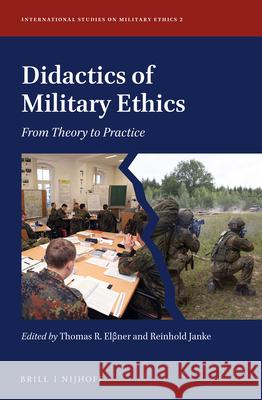Didactics of Military Ethics: From Theory to Practice » książka
Didactics of Military Ethics: From Theory to Practice
ISBN-13: 9789004312128 / Francuski / Twarda / 2016 / 232 str.
The Iron Curtain fell over a quarter of a century ago. With it fell also the relatively straightforward Western assumption that war was going to be a bi-polar, symmetrical affair, albeit one with nuclear overtones - an assumption around which the training and education of military officers had hitherto been built. The immediate post Cold War period showed officers wearing a blue, rather than a green helmet, negotiating with opponents whom they ought not to call enemies and keeping the peace in situations where there was no peace to keep. Added to this was the phenomenon of international terrorism, which manifested itself on the strategic, rather than merely the tactical level. Counter-insurgency operations in Iraq and Afghanistan demonstrate how difficult it is to win the hearts and minds of the local population while subduing the enemy at the same time. With the distinction between what is morally right and wrong becoming ever more blurred, the moral dilemmas of officers and men have begun to multiply and the need to reconsider the basic assumptions and practices of military ethics education in this highly unpredictable world has become ever more urgent. This volume, arising out of a conference held at the Centre for Leadership Development and Civic Education of the German Armed Forces, attempts to address that need. It offers the insights both of officers with combat experience and academics closely familiar with military training, and uniquely bridges the gap between theory and practice in the teaching of military ethics.











